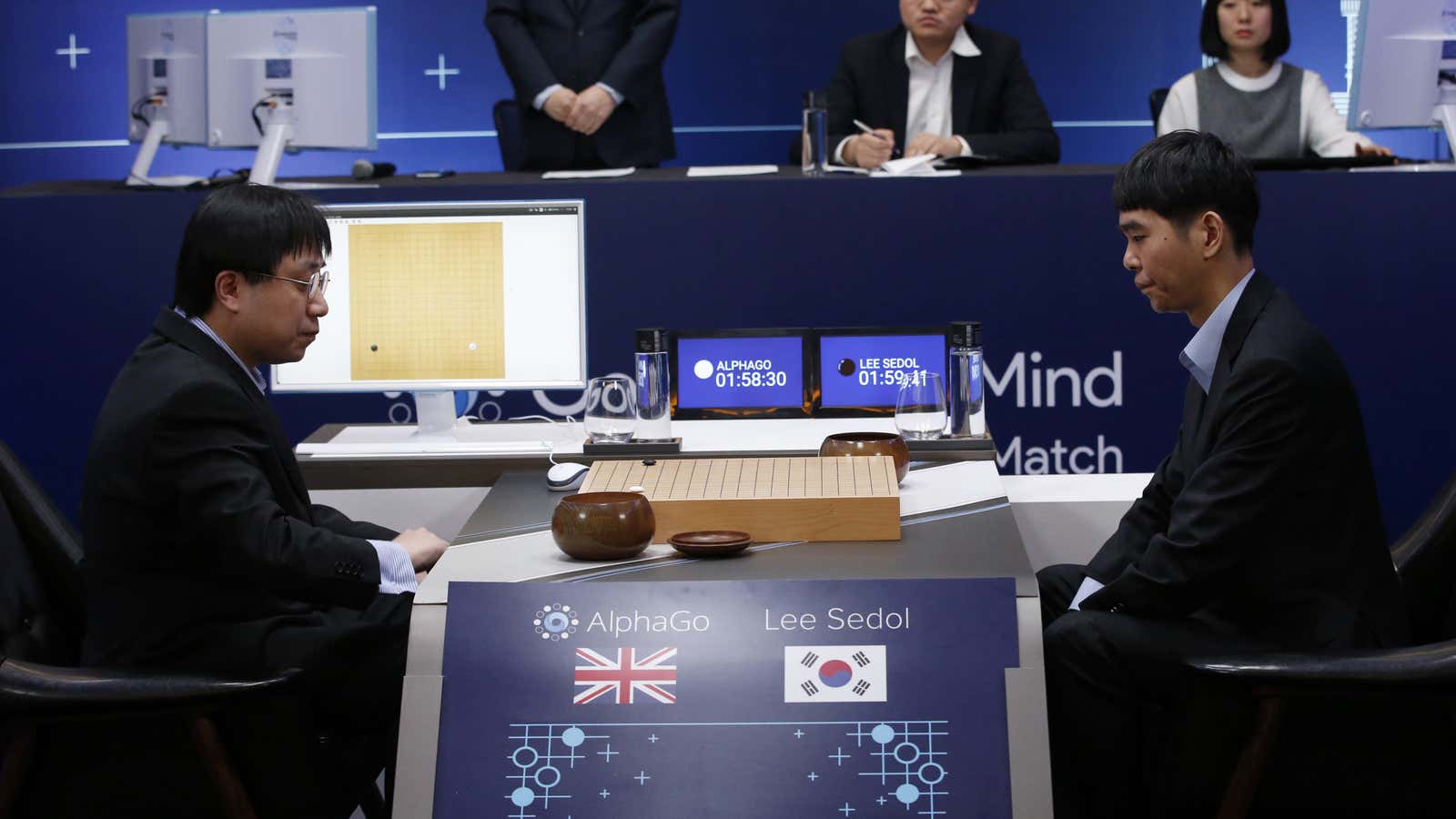Google’s artificial intelligence program AlphaGo has scored the first victory in a five-game match against the world’s best Go player, Lee Sedol. AlphaGo, playing with white stones, defeated Lee, who played with black, in roughly three and half hours. The game was held at the Four Seasons in Seoul.
The game of Go requires players to take turns moving the stones on a grid of 19 by 19 lines, with the goal of claiming more space on the grid than an opponent. The game is over when both players decide they have no further moves to make. Here’s footage from the opening game:
Lee, winner of 18 international titles, said at the outset that he was confident of emerging victorious in the series. “Almost all Go players are intimidated when they play against Lee, that’s partly because of his track record, which is pretty spectacular,” said Michael Redmond, a top-ranked player who gave live commentary on the game for Google’s channel. Lee has 472 wins and 185 losses, or a 72% win rate, for his career to date.
Despite Lee’s fearsome reputation, he was forced to resign with more than 28 minutes left on the clock. Professional Go players reacted in disbelief at the result. ”Oh my god, I can’t believe this,” said Myungwan Kim, a player with the same 9-dan ranking as Lee, who provided live commentary of the game for the American Go Association.
Lee is the most capable Go player to be defeated in a game by AlphaGo. In October, the machine beat the reigning European champion, Fan Hui, in five straight games, marking the first time a machine defeated a professional player. The research that has gone into AlphaGo is the subject of a paper in the journal Nature, published in January.
Go has long been thought beyond the reach of artificial intelligence programs. ”There’s more configurations of the board than there are atoms in the universe,” Demis Hassabis, the chief executive of Google DeepMind, which developed AlphaGo, said. AlphaGo’s victories are therefore major milestones for AI’s development. But the game isn’t over for Lee or AlphaGo yet. There’s still $1 million in prize money at stake. The next game is scheduled for tomorrow, Mar. 10.
